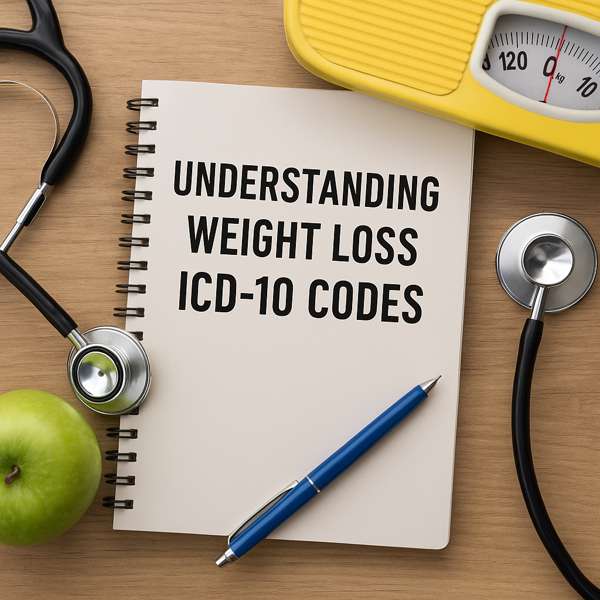Weight Loss ICD-10 Codes
Weight Loss ICD-10 Codes
Blog Article

Whether you’re a medical professional, billing specialist, or patient navigating claims, understanding weight loss ICD-10 codes is key.
In this article, we’ll break down what ICD-10 codes are used for weight loss, how to apply them, and what you should know for accurate recordkeeping.
ICD-10 Basics Explained
ICD-10 stands for the International Classification of Diseases, 10th Revision.
Each diagnosis is assigned a unique code, which is used for:
- Submitting claims to health providers
- Tracking public health trends
- Clinical documentation
Top Codes Used for Documenting Weight Loss
Weight loss can be intentional or unintentional — and each situation has a specific ICD-10 code.
Key codes include:
- R63.4 – Abnormal Weight Loss
This code applies when a patient loses a significant amount of weight without trying, often due to illness.
- Z71.3 – Dietary Counseling and Surveillance
Often applied in cases involving nutritional intervention or guidance.
- Indicates poor nutrition or unhealthy patterns impacting weight
- Used in contrast to weight loss when monitoring obesity treatment progress
- Applied in extreme undernutrition cases, often linked with weight loss
Clinical Use of R63.4
Use R63.4 when:
- website There is no intentional diet or fitness program involved
- Weight loss is a primary symptom in evaluation
- Used as part of diagnostic workup
Avoiding Mistakes in Documentation
To avoid claim denials or coding errors:
- This determines whether R63.4 is appropriate
- Document related symptoms or conditions
- Support your claim with a full picture
- Avoid using obesity and weight loss codes together unless clinically justified
Supporting Preventive Care Through Proper Codes
If you’re coding for a structured weight loss program or health coaching, consider using these Z-codes:
- For nutrition-based support
- Can apply to coaching or fitness counseling
- Z13.21 – Encounter for Nutritional Screening
These codes can support insurance claims for wellness, prevention, and obesity treatment plans.
Final Thoughts on Weight Loss ICD-10 Codes
Whether you’re coding for unintentional weight loss or part of a managed care plan, accuracy matters.
To summarize:
- R63.4 = Unintentional weight loss
- Great for structured programs
- E-codes = Nutritional or medical malnutrition
Always consult coding guidelines and payer policies when applying ICD-10 codes. Report this page